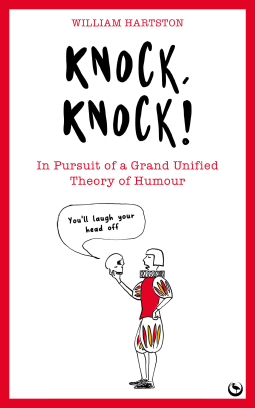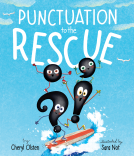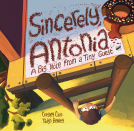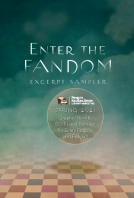
Knock, Knock
In Pursuit of a Grand Unified Theory of Humour
by William Hartston
This title was previously available on NetGalley and is now archived.
Send NetGalley books directly to your Kindle or Kindle app
1
To read on a Kindle or Kindle app, please add kindle@netgalley.com as an approved email address to receive files in your Amazon account. Click here for step-by-step instructions.
2
Also find your Kindle email address within your Amazon account, and enter it here.
Pub Date May 09 2023 | Archive Date May 02 2023
Talking about this book? Use #KnockKnock #NetGalley. More hashtag tips!
Description
Of all human qualities, humour is perhaps the most puzzling. In this very first history of humour, author and humourist William Hartston looks at every aspect of the evolution of humour and our attitudes towards it with a view to developing a proper Theory Of Everything Humorous.
From comedy in ancient Greece and jokes in ancient Rome, to laughter in the Bible and the secret of comic delivery; from how humour changed following the American civil war, to how Mark Twain changed written comedy in the English-speaking world, William leaves no stone unturned in his quest to understand what makes us chuckle. Besides being academically well-founded, A History of Humour will, unlike almost everything else written on the subject, be both seriously humorous and humorously serious.
Available Editions
| EDITION | Other Format |
| ISBN | 9781786787323 |
| PRICE | $16.95 (USD) |
| PAGES | 224 |
Available on NetGalley
Featured Reviews
 Educator 744316
Educator 744316
Very engaging look at the history of humour and a deep analysis of jokes. I like the mix of fun (old jokes and the variants of the word 'laugh') with serious research into the changes in comedy from ancient Greece to Shakespeare to today. Will gladly add to class library for interested students when published.
Humor has come a long way from the time when Aristotle disparaged laughter (as readers of The Name of the Rose know) and to today. The impressive medical advances from the last decades now let scientists know where humor and laughter reside in the brain, and how our brain looks while hearing a joke. This book explains the history of humor, how it has been seen through the ages, how it’s been explored and thrived, as well as the science behind it. It also includes some jokes that made my nephew laugh. There is some information as to how non-human animals respond to tickling, and even some throwbacks to famous TV comedies. The author himself has a great sense of humor, so everything is explained in a fun, approachable way. I don’t know anyone who doesn’t like to laugh so this book will be a treat for readers of all ages.
I chose to read this book and all opinions in this review are my own and completely unbiased. Thank you, #NetGalley/#Watkins Publishing!
 Katy K, Librarian
Katy K, Librarian
Enlightening and entertaining history of humour.
Though it never, of course, manages to find the Unified Theory of Humour that explains the what and why of what humans find chortlesome, that doesn't matter. The author lets us know early on that it surely isn't possible, as many have tried over the centuries, to bring one theory to cover all of Humour.
But it was such good fun seeing theories tested against a selection of jokes. And seeing jokes themselves from thousands of years ago. And seeing different attitudes to laughter and fun - frowned upon, wouldn't you know.
I loved the regular inclusion of jokes. I kept thinking "I must remember that one!" and it was absolutely fascinating getting any insight at all into ancient humour.
With the advent of mass entertainment, we also got a look at humorous books, films, vaudeville acts over the last few hundred years with key works commented on.
This made me want to research the topic more thoroughly, and I was glad to see the references cited as well. It might be one I re-read.
For fans of social history, and those interested in what makes us laugh.
With thanks to Netgalley for providing a sample reading copy.
 Paromjit H, Reviewer
Paromjit H, Reviewer
William Hartston writes a fascinating and indepth well researched history of humour, which has been present right since the beginning of human existence, laughter is thought to have developed before speech and one of the earliest forms of human communication. This dense and detailed study is quite an achievement, given it is hard to know what humour is, or the nature of the relationship between laughter and humour, but this does not stop Hartston from having a go at the unattainable goal of formulating a Grand Unified Theory of Humour. Humour is such a weird thing, not everyone finds the same things funny, and there are significant differences in humour between different countries, and between various cultures. Hartston splits this into 2 main parts, first examining the theory, and the second looking at humour in practice.
The first part takes in philosophers, ancient and more recent, some of whom are sceptical and hostile to humour, the changing nature and meaning of humour and comedy over time, and asks does God laugh? There are numerous theories, including superiority, relief, and incongruity. Laughter serves a vital bonding function, and people are more likely to laugh when they are in a social situation than when they are alone. Genuine humour is but just one cause of laughter, we may laugh when embarrassed, to signal we are in a good mood, because others are laughing, nervous or stressed, as a sign of malice and contempt, or are being tickled. None of the theories work completely, but in recent times it has been possible to look to MRI techniques that examine the impact of humour on the brain.
The practice of humour takes in comedians through time, the role of theatre - the likes of Shakespeare, music hall, and the rising popularity of 'farces'. Cinema goes from the silent era with Chaplin, the slapstick, to the Marx Brothers, with Grouch Marx stating 'humour is reason gone mad', the screwball, Ealing and black comedies. TV and Radio can seal the reputations of comedians but have a downside in that new material is required at a faster rate, and it charts the rise of the sit-com, satire. funny cartoons and animations. This will appeal to readers who are interested in the history, changes, attitudes and perceptions of humour. Many thanks to the publisher for an ARC.
3 likes
Readers who liked this book also liked:
Silvia Moreno-Garcia
Historical Fiction, Literary Fiction, Sci Fi & Fantasy


















